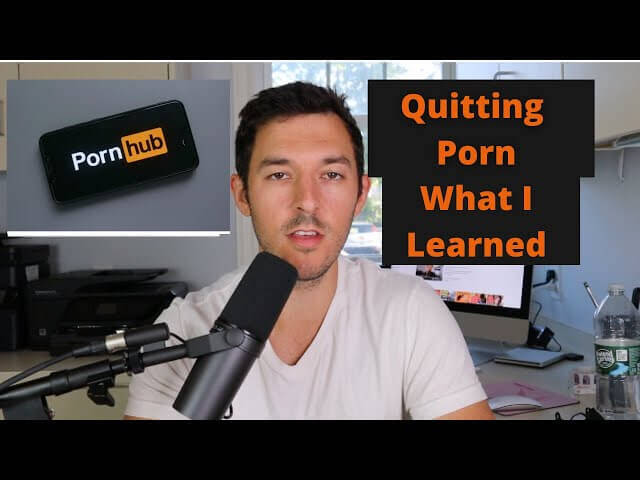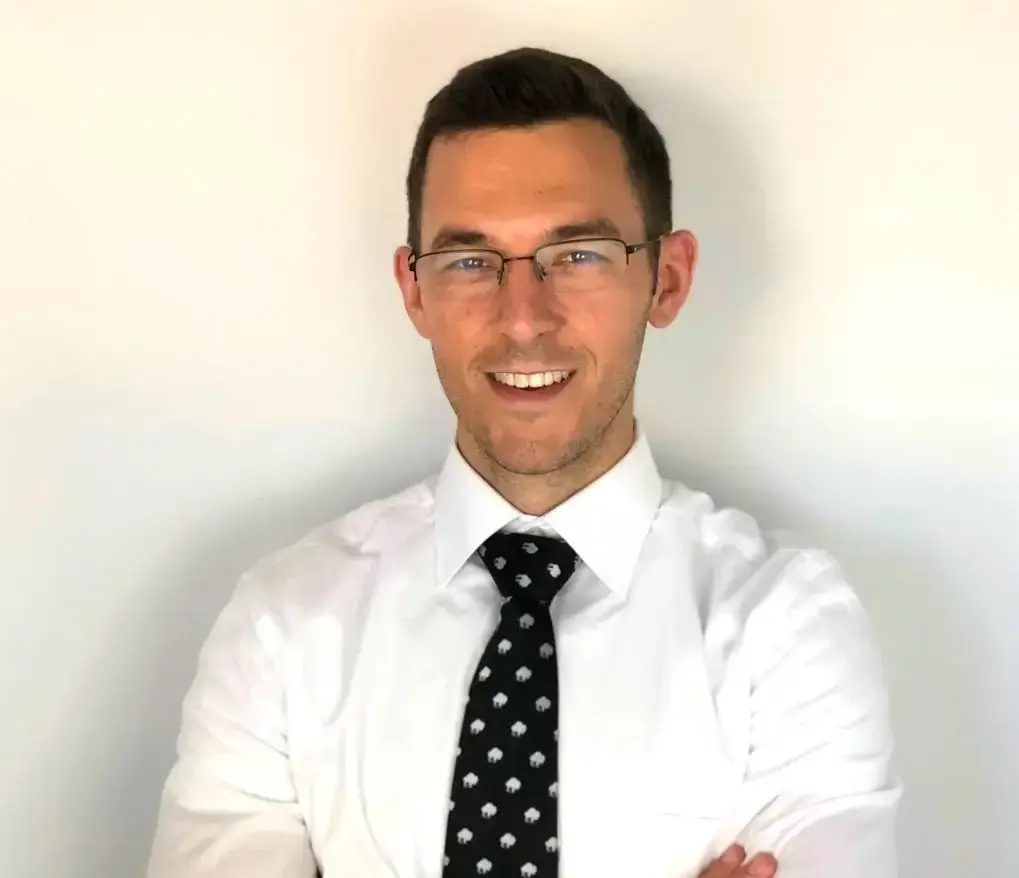
Today, I’ve transcribed an insightful video from Dr. Frank Michalski at Addiction Mindset, who specializes in helping people overcome addictions to pornography, THC, nicotine, and energy drinks. Dr. Frank’s assessment is that a pornography habit or addiction is uniquely difficult to overcome due to 1-) ease of access via the internet; 2-) the lack of human interaction necessary to sustain it; 3-) a surplus of triggers in the culture, namely on social media; 4-) and the lack of a biological brake or protective mechanism, as we see with other drugs, to keep it from getting out of hand. Dr. Frank believes that pornography may be implicated in other addictions, like THC, nicotine, and energy drinks, in cases where people resort to these in order to medicate some of the side effects of pornography use.
Dr. Frank’s message is that change is possible, if we are willing to alter our lifestyle and “reinforce positive behaviors and positive habits.” His plea to people struggling? You’re already struggling with this addiction. Why not start to struggle to create a better life for yourself? Why not start to struggle with some of the pornography withdrawal symptoms, but in the process you’re getting back to exercise, in the process you’re getting back to your relationships, in the process you’re working on your goals, whatever those may be, or creating new goals?

So, I think if you can see porn for what it really is. If you can see porn for what it’s actually doing to you and the significant role that it might be playing in other behaviors in your life, I think it’s going to make quitting a lot easier. Because you’re going to quickly realize, it’s not about what you’re giving up, but it’s about what you stand to gain back from recovering from this addiction.
Dr. Frank Michalski
Hey guys, what’s going on? Dr. Frank here, the founder of Addiction Mindset Recovery Coaching programs, and in today’s brief video, I’m going to take some time and talk about pornography addiction. I’m going to explain why I think it’s one of the most challenging addictions to overcome, the role it plays in nicotine, THC, and energy drink addiction, and provide you with some simple things that you can do to help manage it. Here at Addiction Mindset Recovery Coaching, we help people quit nicotine, THC, energy drinks, and adult media content, so be sure to subscribe if you enjoy today’s video.Â
So, right off the bat, I believe pornography addiction to be one of the most challenging addictions to overcome, and the reason for that is because of the ease of access and the rate at which a person’s tolerance to the addiction, to the drug–we’re going to refer to porn as a drug–can increase. So, if I want to go score some other type of drug, whether it’s weed or something else. Even if I want to go buy alcohol, there’s a process involved. I have to get in my car, I have to go to the store, I have to come home, I have to consume the product, and then I have to be careful not to overconsume, because if I consume too much alcohol, I’m going to vomit. If you smoke too much weed, you’re going to pass out. Your body has a natural stopping system. If you take too much opioid, or whatever, you might overdose. So your body has this natural stop, something to hit the brakes.
With pornography, this is not the case. With porn, you’re able to just pick up your phone, hop on a website, and there’s no brakes, there’s no shutdown of your body when it comes to overconsumption. You can just browse from video to video to video, all the while going to more and more and more graphic content. And that’s one of the most dangerous things about pornography. Your body doesn’t have that breaking point. You can consume porn for hours on end every day–yes, your brain is rotting away during the process, but you’re not going to shut down, like you would with another drug. In fact, what you’re going to do is you’re going to continue to dump dopamine during that duration of time, which is going to lead to more cravings and make it harder to get away from. And you’re going to be continually increasing your tolerance to the content that you’re watching. Combine that with the ease of access that we have to pornography, and I think you have a recipe for disaster.
Now here’s one of the things that also makes porn very challenging–the amount of triggers that are out there today. If you’re on social media platforms, Instagram, TikTok, in particular, Twitter–whatever it may be–you are constantly being triggered by images that probably lead to some kind of sexual thought. That’s another reason why it’s really hard to quit pornography. Now I’m going to tell you, that eventually goes away. Once you have some time and some sobriety from it, that does go away, but in the beginning, it’s challenging.
Let’s go a step further with all of this stuff. People who suffer from pornography addiction often present with like generalized anxiety disorders, depression, and things like that. Now let’s say you’re consuming a decent amount of pornography each day, and you’re suffering from depression or anxiety from it, but you’re unaware that that’s the cause. Now here you are feeling depressed and drained. Now how do you cope with that depression? Well, you might actually turn to another substance, such as nicotine, such as THC, such as alcohol. You might feel drained so here you are requiring two or three energy drinks, just to get through your day.
This is why I think pornography addiction is kind of the center glue, perhaps, in some people’s cases, for these other addictions. Like, if they broke pornography, maybe they’d start feeling less anxiety, feeling less depression, and now they have less of an urge to use the amount of THC that they used, or the amount of nicotine that they used, to cope with the depression and the anxiety. So, I think pornography addiction plays a role in multiple other addictions, because of the symptoms that it causes.
Quitting porn is also extremely challenging because our body doesn’t have those built-in braking systems, like it does with other substances or other drugs. You’re able to just continually consume adult media content. One, most other people in society don’t know what you do behind closed doors. So you’re not going to walk around smelling like alcohol. You’re not going to walk around smelling like cigarettes, so that guilt and that shame is really isolated to you. Other people don’t see it. I think that allows people to continue to use, because you don’t have that judgment from the general public, because they don’t know what you’re doing behind closed doors.
Now here’s the problem. You know what you’re doing. And there’s a big issue with that. If you struggle with addiction, addiction requires work, okay. And addiction is a struggle, quote unquote. Believe it or not, you enjoy struggling. People enjoy struggling. I saw a Joe Rogan podcast on this once, and it’s true. We need to be challenged, mentally, physically. We need to work, and pornography addiction robs a person of that work. Picking up your phone, finding a video, and then just browsing, that really requires no work.
A relationship requires work. A job requires work. Going to achieve one of your goals requires work, and as human beings we need to work to feel valued. We need to work–most of us–to feel good about ourselves. And pornography addiction robs us of the joy of work, whether it’s work in a relationship or going after a goal, because the porn has made us demotivated, whatever it may be. And that, in my opinion, is one of the most dangerous things about pornography addiction. It’s not erectile dysfunction. It’s not ruining a marriage or ruining a relationship, that can occur from that. It’s robbing a person of their ability to experience finding joy in working and achieving and going after something.Â
Porn is the definition of instant gratification, especially if we’re sprinkling in all these other sources of instant gratification throughout the day–alcohol, nicotine, weed, energy drinks, whatever it may be. We know this, we’ve heard it before–instant gratification, short-term feels good, long-term feels terrible, because we don’t get the opportunity to enjoy a little bit of that struggle. We don’t get the opportunity to enjoy that work and the feelings of accomplishment that come with work, the feelings of accomplishment that come with that struggle.
So, here’s my challenge to those of you watching this video who made it to the end. You’re struggling anyways. You’re already struggling with this addiction. Why not start to struggle to create a better life for yourself? Why not start to struggle with some of the pornography withdrawal symptoms, but in the process you’re getting back to exercise, in the process you’re getting back to your relationships, in the process you’re working on your goals, whatever those may be, or creating new goals. That’s what I challenge you to do.Â
And I also challenge you to redirect your habits. The reality is you’re not going to get rid of your phone, okay. But the behaviors you engage in when you pick up your phone day-to-day can change a lot. I went from adult media content to Jordan Peterson, Tony Robbins, you know, Grant Cardone, all the motivational guru videos and addiction recovery videos. So now it’s like a habit, it’s not going to be for adult media content, it’s for these other things that I enjoy, or I have other videos sprinkled in, geared towards my hobbies. But instead of going to the hub, I’m hopping on YouTube. Like anything, you can reinforce positive behaviors and positive habits. And I try to stick to things that are constantly going to move the needle forward in my life, versus pull me backwards in life.Â
So, I think if you can see porn for what it really is. If you can see porn for what it’s actually doing to you and the significant role that it might be playing in other behaviors in your life, I think it’s going to make quitting a lot easier. Because you’re going to quickly realize, it’s not about what you’re giving up, but it’s about what you stand to gain back from recovering from this addiction.

